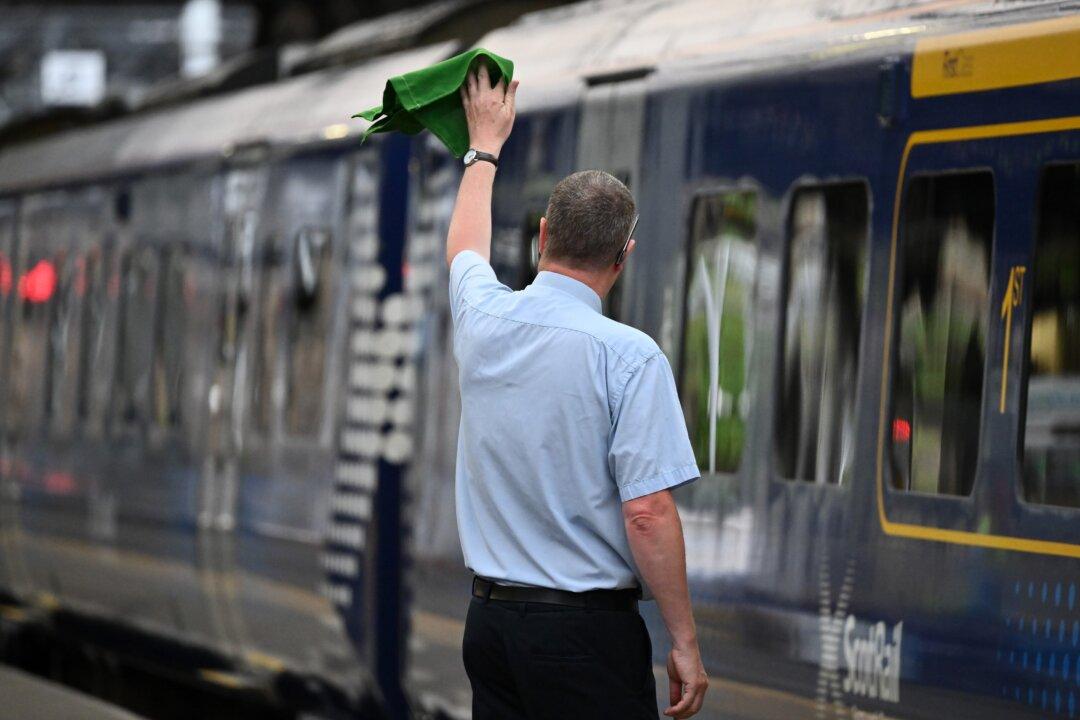The UK government has announced new legislation to enable businesses to supply agency workers to plug staffing gaps during industrial action, as train services were disrupted again by the second nationwide strike of the week.
Following widespread travel chaos on Tuesday, some 40,000 members of the Rail, Maritime, and Transport Workers’ union (RMT) walked out again on Thursday, and are expected to go on strike again on Saturday.





